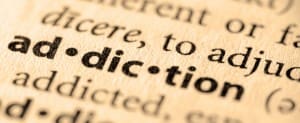 For generations addiction was understood to be a lack of willpower. People with this mindset believed that the addicted person chose to make bad decisions and act selfishly. People thought recovery could be accomplished by forcing addicts to take responsibility for their actions and say “no” to their urges to drink/use.
For generations addiction was understood to be a lack of willpower. People with this mindset believed that the addicted person chose to make bad decisions and act selfishly. People thought recovery could be accomplished by forcing addicts to take responsibility for their actions and say “no” to their urges to drink/use.
In recent decades, science has discovered that addiction is a complex disease, influencing brain function on various levels. Biochemical responses and DNA abnormalities are among the many factors that may contribute to addiction. Since these factors impact a person physiologically (body chemistry) and psychologically (mind and emotions), treating addiction is far more involved than simply expecting alcoholics/addicts to take responsibility for their actions and say “no” to urges, as explained by the National Institute on Drug Abuse.
Taking responsibility and saying “no” to urges is a good beginning; however, more is required. The diseased brain of the alcoholic/addict needs time to detox and begin to heal. They need to be educated about the disease of addiction and learn skills to work through the consequences caused by drinking/using, as well as skills to help them live life differently. AA literature describes this disease as being “cunning, baffling and powerful.” Once a person’s brain is altered by addiction, they must remain constantly on guard to avoid relapse.
The addicted person needs to make tough decisions and apply a disciplined effort to break free from using alcohol or drugs. However, this step in their recovery can be very difficult because they have a brain disease that can overwhelm good judgment and “hijack” their will. Recovery begins by recognizing that addiction is incredibly powerful and the addicted person is powerless, having become a victim of their disease. Recovery demands a constant, dedicated effort to combat a chronic, life-threatening condition.
Stay tuned for the other 7 keys in the coming days!


